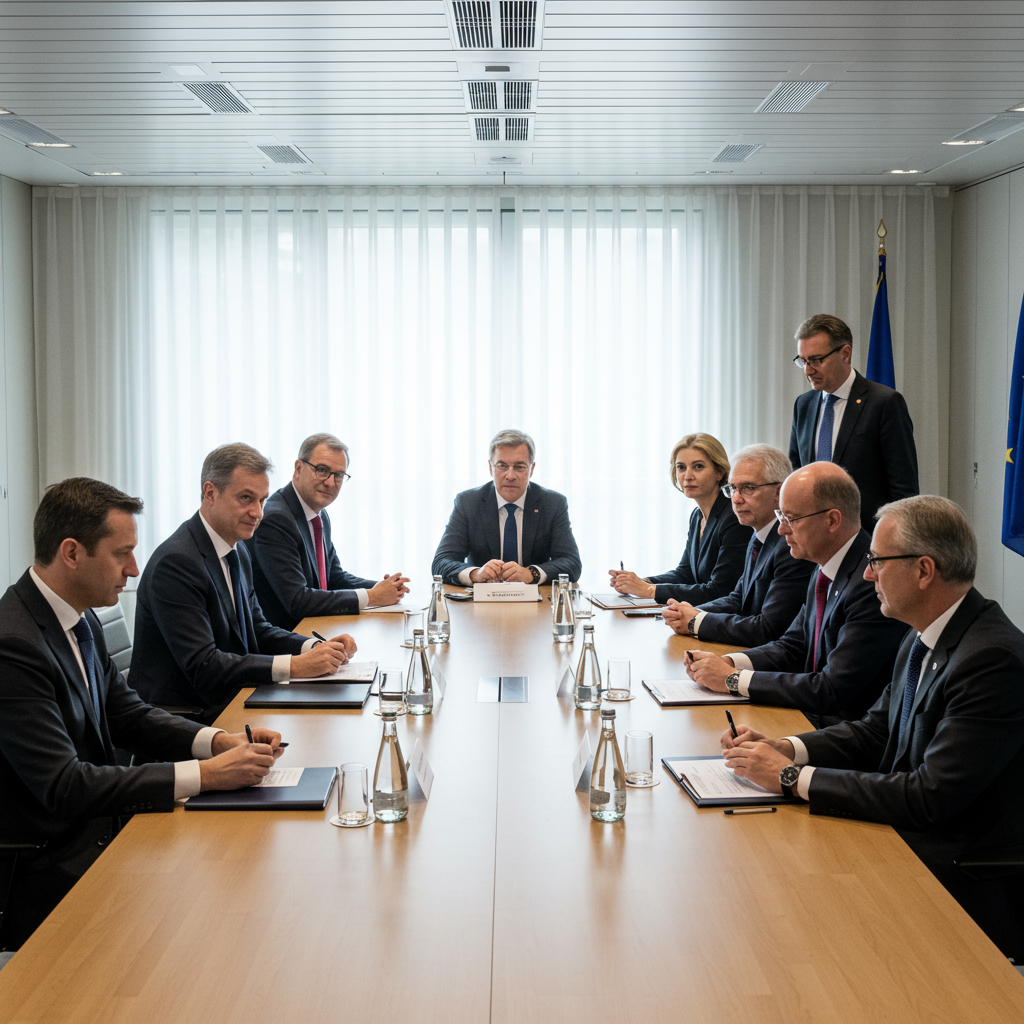European leaders are increasingly concerned about their significant reliance on technology and services provided by companies based in the United States. This long-simmering worry has been brought to a head by recent geopolitical events, sparking a renewed push for greater European digital sovereignty.
The incident that appears to have served as a critical “smoking gun” occurred when Microsoft deactivated the email account of Karim Khan, the chief prosecutor at the International Criminal Court (ICC). This action followed sanctions imposed by the U.S. administration under President Donald Trump against Khan, in response to the ICC issuing arrest warrants for Israeli officials.
This event starkly illustrated a major fear among European governments and institutions: that U.S. technology companies might be obligated or compelled by U.S. law and policy to comply with American directives, potentially impacting their non-U.S. customers during geopolitical disputes. As former diplomat and Microsoft employee Casper Klynge noted, this compliance risk is precisely what pushes Europeans to seek alternatives. The concern is that if the U.S. targets specific individuals, organizations, or countries, American tech providers could be forced to cut off essential services.
This specific incident has prompted tangible shifts. Reports indicate some ICC workers have already transitioned to alternative services, such as the Swiss-based email provider Proton, signaling a move towards perceived-as-neutral or European-based options.
Why Europe’s Reliance on US Tech is a Geopolitical Concern
The worries extend far beyond single incidents. They are deeply embedded in the broader landscape of transatlantic relations and a shifting global order. For Europe, reliance on U.S. tech is not just a technical issue; it’s a question of strategic autonomy and digital sovereignty.
Discussions among experts highlight that Europe is increasingly realizing it cannot take traditional U.S. security or economic partnerships for granted. Potential shifts in U.S. foreign policy could lead to a less predictable relationship. Within this context, European leaders perceive a need to build their own capabilities and reduce dependencies, including in critical digital infrastructure.
Furthermore, friction points exist regarding technology regulation itself. The U.S. has sometimes viewed ambitious European digital rules, like those aimed at governing large tech platforms, as potentially “anti-American.” Europe, however, sees these regulations as vital for protecting its democracy, citizens, and fostering its own digital economy. The potential for the U.S. to use its leverage, possibly even security guarantees, to pressure Europe on these regulations adds another layer of concern regarding reliance on U.S. tech providers who are subject to U.S. laws and influence.
Industry Responds with “Sovereign Solutions”
U.S. tech companies are aware of these growing European anxieties. Microsoft, addressing the fallout from the ICC incident and broader concerns, has stated it has implemented policy changes designed to better protect customers in similar situations. The company also pointed out it did not shut down accounts for other ICC judges sanctioned at the time.
In a move clearly aimed at mitigating European fears and retaining customers, Microsoft CEO Satya Nadella recently announced new “sovereign solutions.” These specialized offerings are designed to provide enhanced data control, security, and compliance measures tailored specifically for European institutions and governments, acknowledging the unique requirements driven by geopolitical considerations and the push for digital sovereignty.
Ultimately, the incident involving the ICC prosecutor’s email served as a potent reminder for Europe of the potential risks inherent in deep reliance on U.S. technology infrastructure. It has reinforced the strategic imperative for Europe to develop and adopt alternative solutions, fostering greater digital autonomy in an increasingly complex geopolitical environment.



